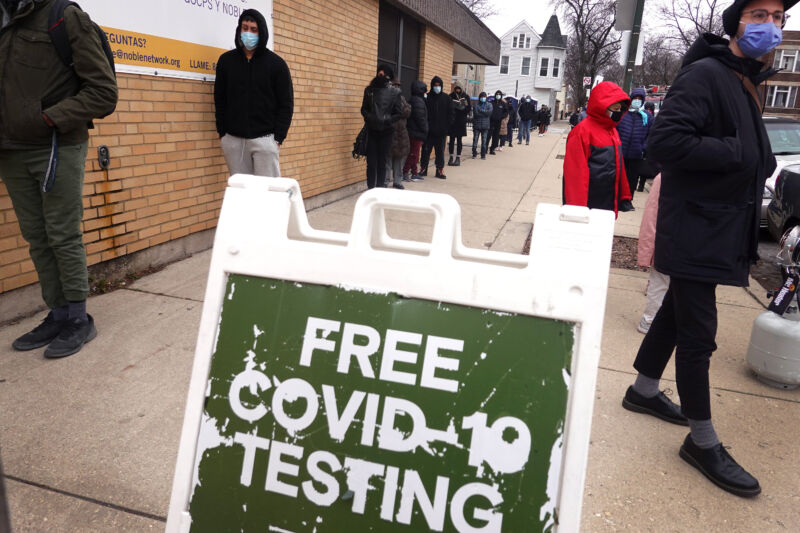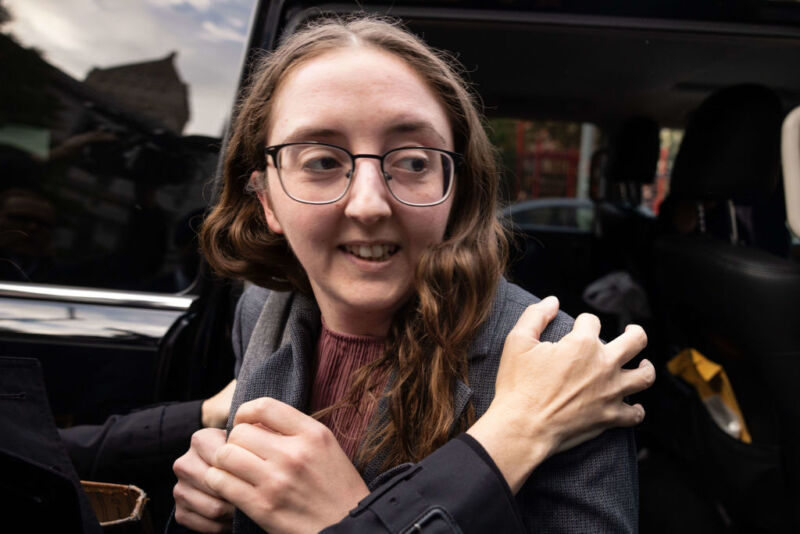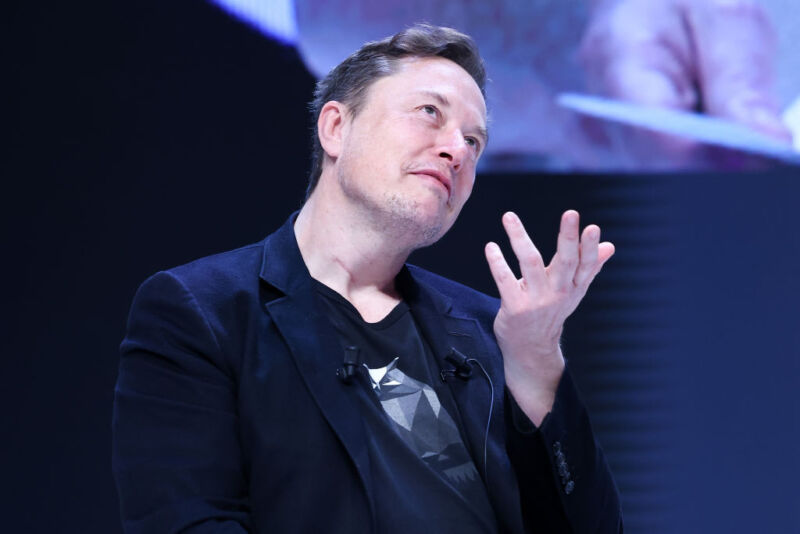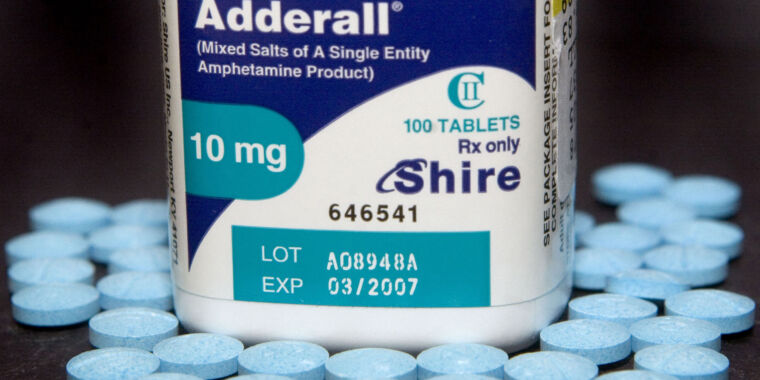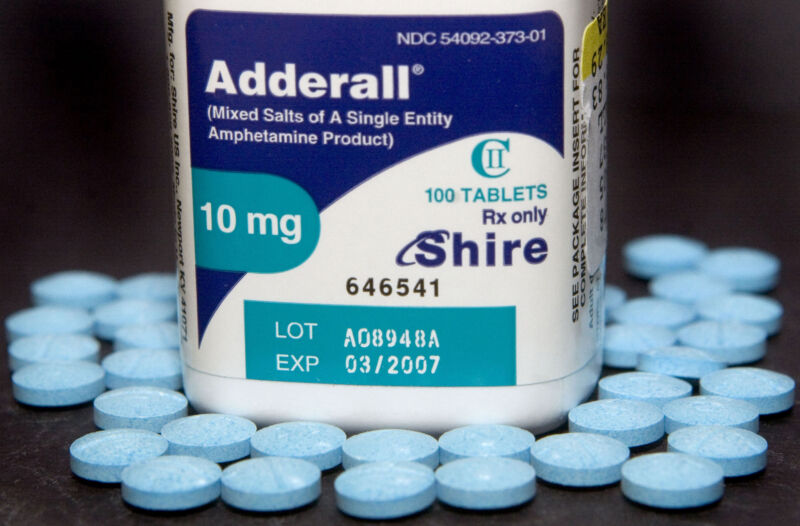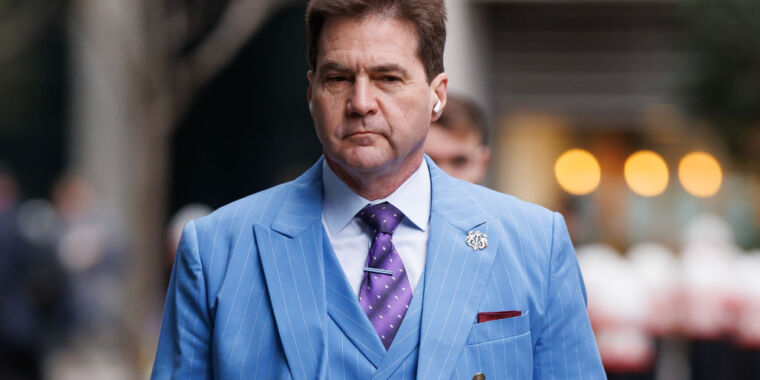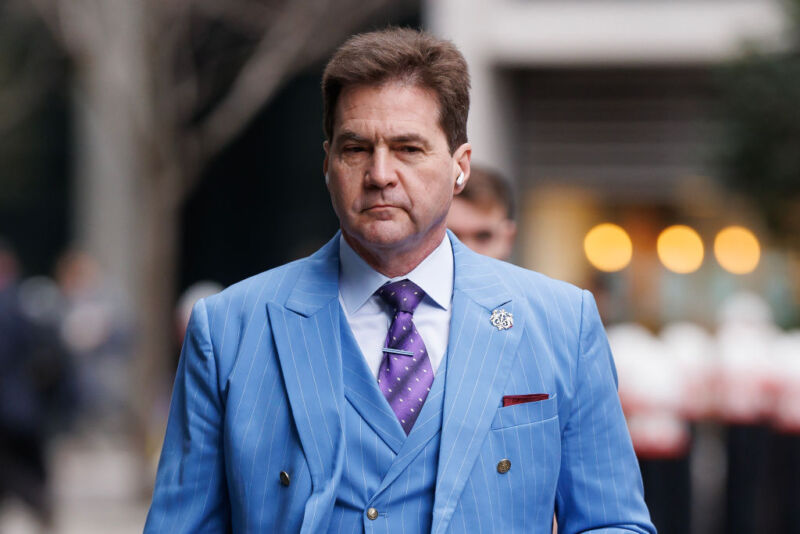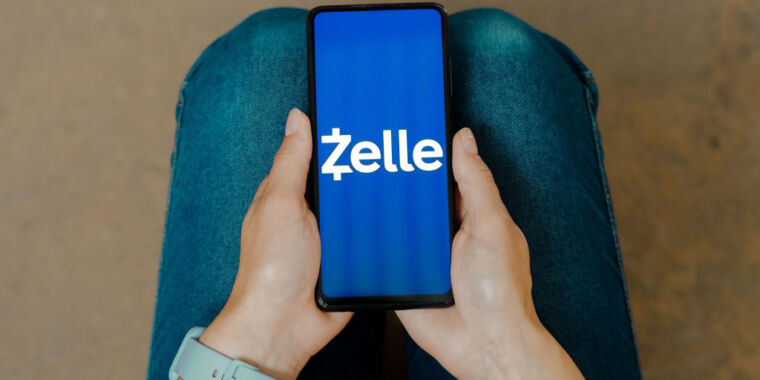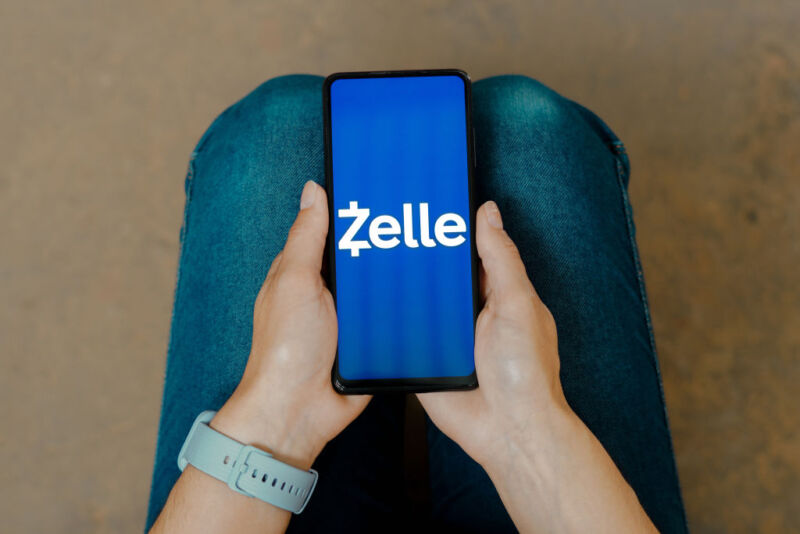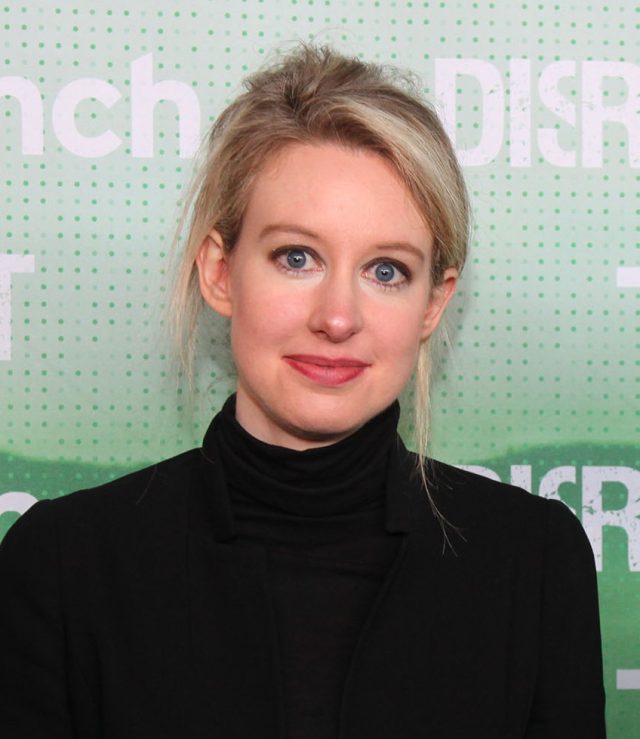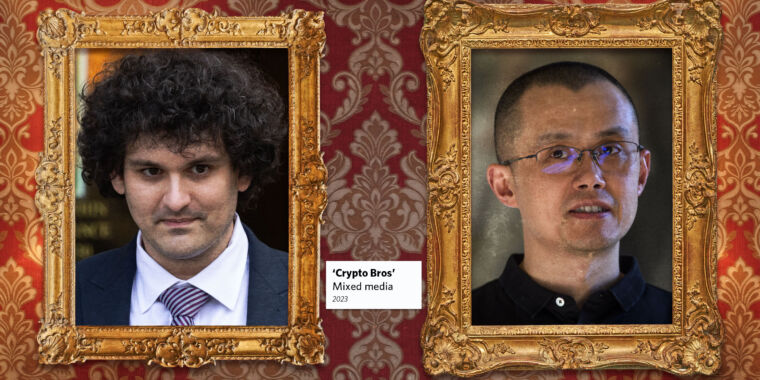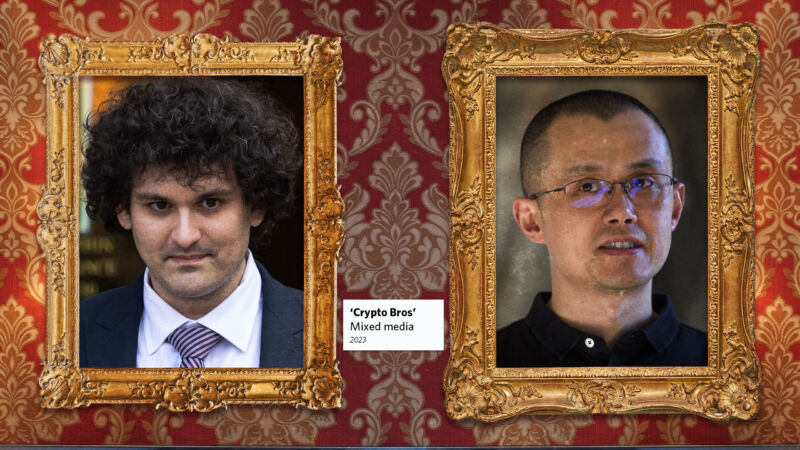Spotify criticized for letting fake albums appear on real artist pages
Will the real Spotify artist please stand up?
Real bands struggle to remove fake albums from their Spotify pages.

Psych rock band Gong found out about a fake album on their Spotify page while on tour. Credit: via Gong
This fall, thousands of fake albums were added to Spotify, with some appearing on real artist pages, where they’re positioned to lure unsuspecting listeners into streaming by posing as new releases from favorite bands.
An Ars reader flagged the issue after finding a fake album on the Spotify page of an UK psych rock band called Gong. The Gong fan knew that the band had begun touring again after a surprise new release last year, but the “latest release” listed by Spotify wasn’t that album. Instead, at the top of Gong’s page was a fake self-titled album supposedly released in 2024.
The real fan detected the fake instantly, and not just because the generic electronic music sounded nothing like Gong’s experimental sounds. The album’s cover also gave the scheme away, using a generic font and neon stock image that invoked none of the trippy imagery that characterized Gong’s typical album covers.
Ars confirmed with Gong member Dave Sturt that the self-titled item was an obvious fake on Monday. At that time, Sturt said the band was working to get the junk album removed from its page, but as of Tuesday morning, that album remained online, along with hundreds of other albums uploaded by a fake label that former Spotify data “alchemist” Glenn McDonald flagged in a social media post that Spotify seemingly ignored.
Hey @Spotify, you got thousands of junk albums with real artist names from “Ancient Lake Records”, “Beat Street Music” and “Gupta Music” today.
— glenn mcdonald (@glenn_mcdonald) October 11, 2024
On his site, McDonald gathered the junk album data by label, noting that Beat Street Music, which has no web presence but released the fake Gong album, uploaded 240 junk albums on Friday alone. Similarly, Ancient Lake Records uploaded 471 albums on Friday. And Gupta Music added 483 just a few days prior, along with 600 junk albums from Future Jazz Records uploaded between September 30 and October 8.
These junk albums don’t appear to be specifically targeting popular artists, McDonald told Ars. Rather, generic music is uploaded under a wide range of one-word artist names. However, by using that tactic, some of these fake albums appeared on real artist pages, such as Gong, experimental rock band Swans, and English rock bands Asia and Yes. And that oversight is on Spotify, McDonald suggested.
“Given the scale of output and the randomness of the names, my guess is that the owners of this stuff might not even have intended it to end up on existing artist profiles,” McDonald told Ars. “If they just submitted stuff with artist names, not IDs, then it’s the streaming service’s problem to match those names to profiles, and thus the streaming service’s fault for not figuring out that these are not by the real Yes, Asia, Gong, Swans, etc.”
McDonald told Ars that “the labels should have been a pretty obvious clue in this case” that the album uploads weren’t genuine releases.
“If I still worked there, I would also have immediately scoured the input databases for more releases with the same patterns,” McDonald told Ars. “The stuff I found from those few labels might be only a tiny fraction of the crap.”
A spokesperson told Ars that Spotify is investigating the junk albums that McDonald flagged. It may take time for all albums to be removed from artists’ pages.
“We are aware of the issue, have relocated the content in question, and are considering our further options against the providing licensor,” Spotify’s spokesperson said. “When we identify or are alerted to attempts by bad actors to game the system, we take action that may include removing stream counts and withholding royalties. Spotify invests heavily in automated and manual reviews to prevent, detect, and mitigate the impact of bad actors attempting to collect unearned royalties.”
Spotify seems to turn blind eye to fake albums
McDonald helped Spotify crunch streaming data for a decade before leaving the company in March. He documented his experience in his 2024 book You Have Not Yet Heard Your Favourite Song, which discusses how Spotify deals with streaming fraud.
According to McDonald, “streaming music fraud is not, to be brutally honest, the most glamorous or profitable form of villainy” because “streaming rewards accumulate in tiny micro-transactions.” The only way to get rich is to scale the shady streaming by becoming a business—it seems possible due to similarities in thousands of fake album designs that all the labels McDonald flagged could be under one licensor—but even then, “the larger the scale, the easier it is to detect,” McDonald suggested.
“Abuse at any productive scale almost always ends up revealing itself to somebody,” McDonald wrote, noting that “if the money can find you, so can consequences.”
McDonald told Ars that when he worked at Spotify, he “maintained some dashboards to watch for this sort of thing before the releases went live.” But with so much fraud seemingly going undetected now, McDonald guesses that maybe Spotify “didn’t keep those tools running” after he left.
In his book, McDonald noted that this kind of fraud impacting real artists is often detected by fans, like the Gong fan who reached out to Ars. On Reddit, a fan of dubstep artist Cyclops and soul band Maze criticized Spotify for doing nothing about the same batch of fraudulent uploads that McDonald flagged, despite multiple fan reports.
“If dubious junk shows up on real artist pages, people notice,” McDonald wrote.
In his book, McDonald suggested that the odds of profiting from music streaming fraud have seemingly gotten worse because of authorities cracking down on bad actors and streaming services strengthening fraud prevention teams as generative AI makes streaming music fraud easier than ever.
But even with stronger fraud prevention tools, Spotify seemingly does not immediately respond even when junk albums are flagged directly by artists with tens of thousands of monthly listeners, like Gong. And Spotify also does not seem to bother to trace reported fakes the way McDonald might have to rapidly detect even broader patterns of abuse impacting bands with millions of monthly listeners like Yes or Asia.
Spotify currently seems much quicker to act to detect fake listeners—at times removing music by artists who later prove they committed no fraud, Variety reported in April. To deter that threat, the streaming music service recently started charging “distributors $10 for every track that it has detected accruing significant numbers of artificial streams,” Variety reported. Perhaps eventually, Spotify will crack down just as hard on fake albums.
For now, artists can use a form to report when their music is “mixed up with another artist,” a Spotify support page says.
But there’s no obvious way to flag fake albums on the platform. Sturt told Ars that Gong became aware of the issue on their Spotify page in the middle of a US tour, thanks to “wonderful fans.” He said that Spotify should make it easier for bands to report bogus albums, telling Ars, “it’s hard enough in this industry to get our music heard without Spotify allowing this sort of thing to happen.” As Gong prepares for a new release in 2025, the band recommended that fans consult its site for official information rather than trusting Spotify.
Spotify criticized for letting fake albums appear on real artist pages Read More »



